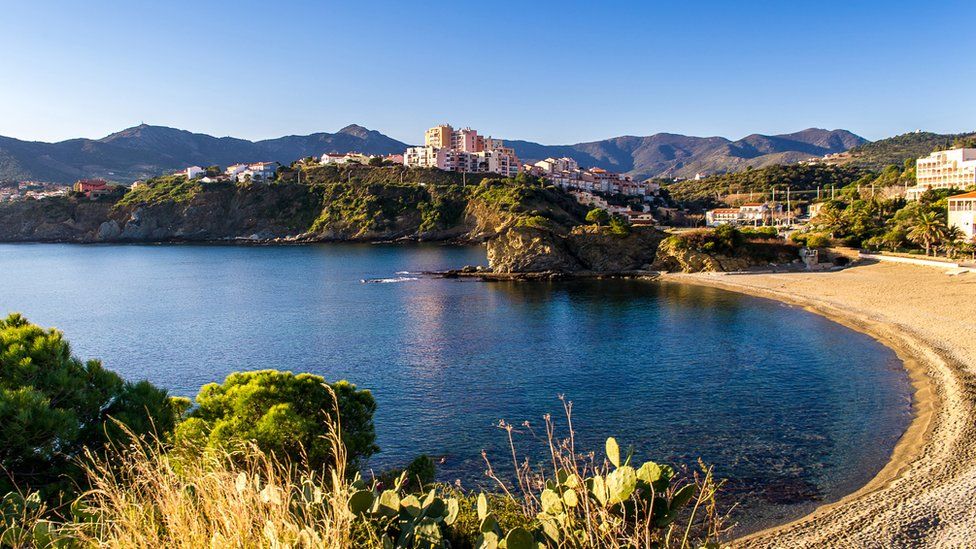-

-
-
Loading

Loading

Tourists along the French coast near the Spanish border may not realize the brewing tension between the two countries. Two years ago, the French government unexpectedly closed four small roads that connected the area with Spain, citing illegal immigration as the reason. The closures have been linked to anti-terrorism measures. However, the residents of Banyuls-sur-Mer, a town of 6,000 people, have long-standing economic, cultural, and personal ties with their Spanish neighbors. Posters advocating for the reopening of the border can be seen throughout the town. One of the closed roads, known as Col de Banyuls, holds significant historical value as thousands of Spaniards fled to France during the Spanish Civil War. A pressure group of over 1,000 people, called "Alberes without borders," has been rallying and going to court in an effort to reopen the road. Pierre Becque, a retired lawyer and the head of the group, believes that the concept of a border is irrelevant to the people in the area, as they have always had relatives on both sides. While driving up Col de Banyuls, visitors can see massive boulders blocking the road, although one appears to have been nudged aside to allow small vehicles through. The closure of the roads has also negatively impacted the region's wine industry, as hundreds of grape-pickers used to cross the border for seasonal work. Jean-Pierre Centene, the head of the biggest cooperative in the area, L'Etoile, mentions that what used to be a 15km trip for Spanish workers has turned into an 80km journey, leading to a decrease in available labor and grapes withering on the vines. Meanwhile, on the Spanish side of the border, a large rock from the closed border has been placed on display in the main roundabout of Espolla, a Catalan village. Local farmer and councillor Josep Maria Tegido argues against the closed border, claiming it obstructs traditional, cultural, and economic activities. Despite the protests and the negative impact on the local community, the French government has prioritized national security and anti-terrorism efforts.